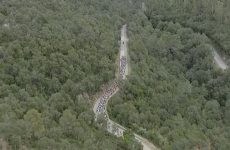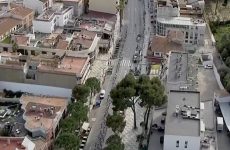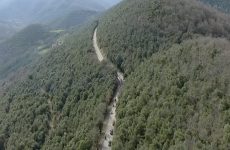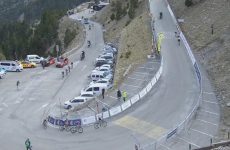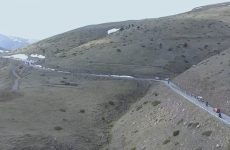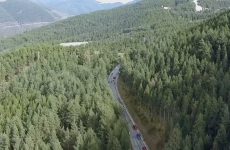Description
March 23, 2023
Volta Ciclista a Catalunya 2023 – Stage 4 – Llívia – Sabadell : 188,2 km
The Volta Ciclista a Catalunya is the fourth oldest stage-race in the world.
Show more...
March 23, 2023
Volta Ciclista a Catalunya 2023 – Stage 4 – Llívia – Sabadell : 188,2 km
The Volta Ciclista a Catalunya is the fourth oldest stage-race in the world. Falling in the middle of the Spring Classics period, the seven-day race offers those riders tired of cobblestones some sunnier solace and a chance to hone their form ahead of the first Grand Tour of the year. Created in 1911 by a Catalan journalist in an attempt to sell more copies of the sports newspaper, El Mundo Deportivo, the race received mixed support in its early days. Just 34 riders started the inaugural edition of the race, with only 22 of those going on to reach the finish in Barcelona. The race was then suspended during World War I before being revived in the 1920s by Unión Deportiva de Sants, a big-name sponsor from the footballing world.
Australia’s Kaden Groves (Alpecin-Deceuninck) won the tumultuous bunch sprint finish on stage 4 of the Volta a Catalunya ahead of Bryan Coquard (Cofidis).
A daylong breakaway of five was swept up close to the finish town of Sabadell, with Coquard leading out the sprint.
However, Groves timed his sprint perfectly to come past Coquard and win the second Volta a Catalunya stage win of his career. Israel-Premier Tech’s Corbin Strong was third.
Primoz Roglic (Jumbo-Visma) remained in the lead for a fourth straight day, tied on time on GC with key rival Remco Evenepoel.
On a broad, open boulevard finish going into a headwind, Groves said he knew he had had to wait for the other sprinters to challenge before trying to come around them at the last moment possible.
Coquard recognised he had opened up the throttle a little too early, and although Groves’ winning margin over the Frenchman was only half a wheel at the finish, there could be no questioning of the justice of his victory.
“It’s been a tough year so far, but to get a win is a fantastic feeling, particularly after a lot of hard work by the team today,” Groves said later. “This victory is certainly for them.”
“It was a fairly straightforward run-in, not too technical but a hard day, so there were only a few guys who could really fight for the finish.”
“I knew I had to time this sprint right, though, and let him [Coquard] go first and come over the top.”
Contrary to expectations, the early first-category ascent of La Molina failed to produce a breakaway as Euskaltel-Euskadi and Uno-X Pro Cycling insisted on keeping the bunch together at least until they managed to get a rider in a move. But as the race headed down from La Molina and south out of the Pyrenees across central Catalunya, five riders finally made it clear.
The breakaway of the day consisted of Catalan racers David De La Cruz (Astana Qazaqstan), born and raised in the finish town of Sabadell, and Roger Adrià (Kern Pharma) from Barcelona. Nans Peters (AG2R-Citroën), Christopher Juul-Jensen (Jayco-AIUIa) and Torsten Traeen of Uno-X Pro Cycling made up the three.
None of the riders represented a GC threat, with Adrià the best placed at over 13 minutes, and it was hardly a surprise their lead stretched out to four minutes before Ineos Grenadiers took up the chase, with Egan Bernal amongst those lending a hand.
For the next 100 kilometres, the race situation stayed all but stable, although the addition of Cofidis and Alpecin-Deceuninck – pushing for their respective sprinters Bryan Coquard and Kaden Groves – to the pursuit gave the peloton a little more speed. The combined effort of the three teams became most notable in the final hour when the gap began dropping steadily. And with 35 kilometres to go, as it wavered at around a minute, the break’s team cars were already offering the riders a final round of gels before being ordered to drop behind the bunch.
However, the battle between peloton and break re-intensified on the wooded, winding slopes of the third category climb of Col de Lligaboses, with Bernal and Ben Tulett doing much of the work behind and De La Cruz, presumably riding on some of his training roads and getting the biggest cheers from local fans, leading the quintet.
Peters, already an impressive winner of a formidably difficult, rain-lashed Trofeo Laigueglia this spring, added his strength on the long downhill section, with the gap inching down painfully slowly to 30 seconds with 10 kilometres to go.
De La Cruz refused to throw in the towel as the road finally flattened and straightened out on the outskirts of Sabadell, and the bunch finally caught sight of the five ahead. Four kilometres to the line the five were swept up with the two locals, De La Cruz and Adrià, shaking hands after a lengthy collaboration gave them a chance to shine in front of a home crowd. But despite the rugged start to the day’s route, the relatively easy terrain that followed always favoured an outcome of a bunch sprint, and given only three hilly stages remain, the fast men’s teams knew they had to make it count while they could.
After Thursday’s transition stage, the race reaches a crunch moment on Friday when the peloton tackles the Volta’s third and final summit finish, the little-known but brutally hard ascent of Lo Port – to give it its best-known name, though it’s also called Monte Caro or the Mirador del Portell.
Officially measuring 8.6 kilometres and with average gradients of 8.8%, the hors categorie climb’s real distance is almost double that. Lo Port is the only major ascent of the day but such a difficult ascent will likely prove to be the most decisive moment of the 2023 Volta a Catalunya.
Results :










